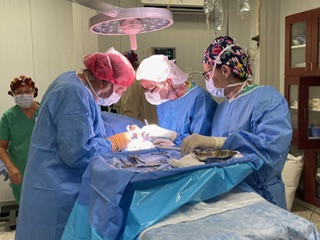
Heading to Honduras – Our New Medical Mission Frontier
It’s hard to believe that the violent and unstable situation in Haiti has grown so very dire. As a result, in mid 2023, we lost our staff on the ground at St Jude Clinic (Port au Prince), and Double Harvest Clinic (Crois du Bouquet) was forced to close. So, all our hopes of rekindling our medical mission teams to the country we had so dearly embraced have dwindled. Everything we worked to build over the years was now lost and forsaken because unrelentless gang violence coupled with an inept government have forcibly crippled the nation. And even though we dabbled with a possible mission trip to Cap Haitian in the north, the escalating crime situation in that region quickly snuffed out our plans. Hence, we pivoted to now focus on Honduras, another one of the world’s poorest nations, and have made connections to root ourselves into a new clinic.
Prior to teaming up with the first medical brigade run by Blue Sky Medical, I hiked with my husband and a friend various sections of the Camino de Santiago across the north of Spain. The long and arduous journey proved exhausting both mentally and physically. Prior to setting out, I was unsure if the poor condition of my knees would interfere with my ability to endure the long stretches of hikes along the uneven stony path. But once falling into the cadence of the walk, I found myself letting go of all pains, apprehensions, frustrations, and anxieties. The challenge of the walk strengthened my inner ability to meet the new and glaring challenges ahead on the road of life. I felt fully prepared now to take on the untraveled road to Honduras.
Hiking the Camino de Santiago
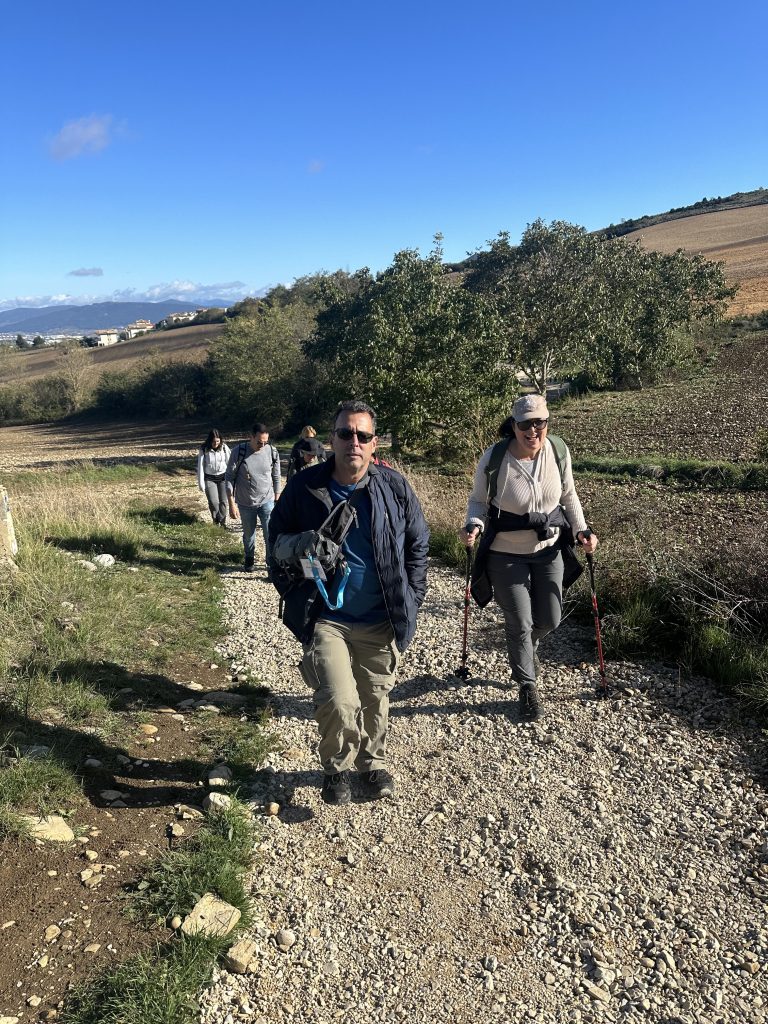
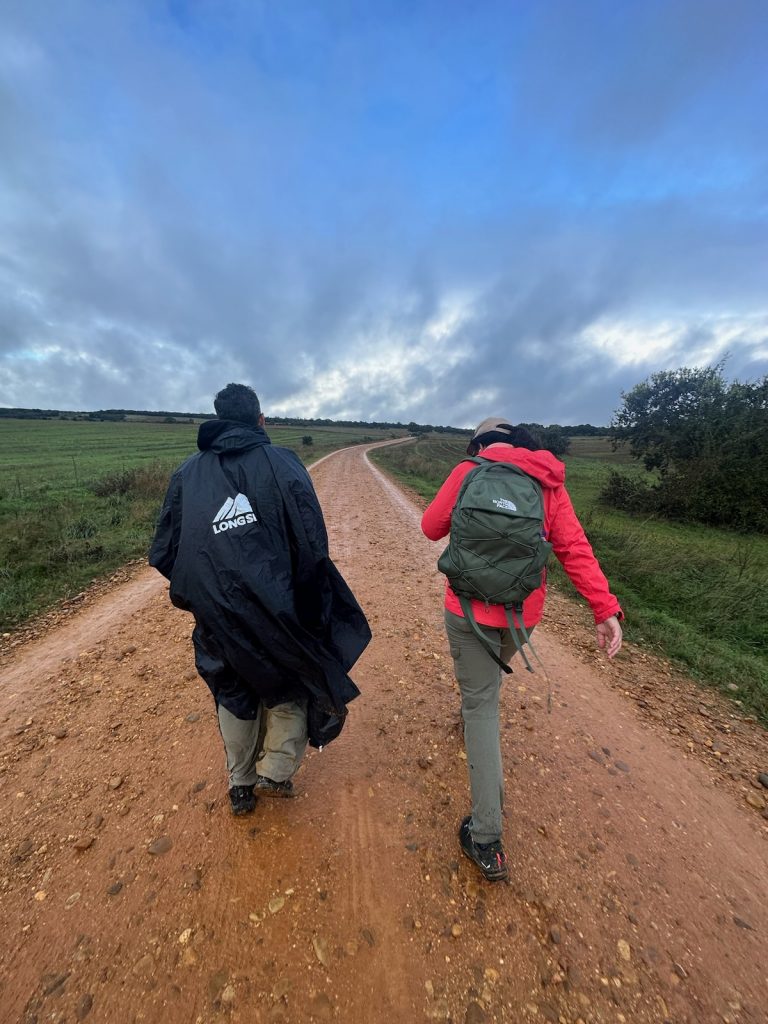
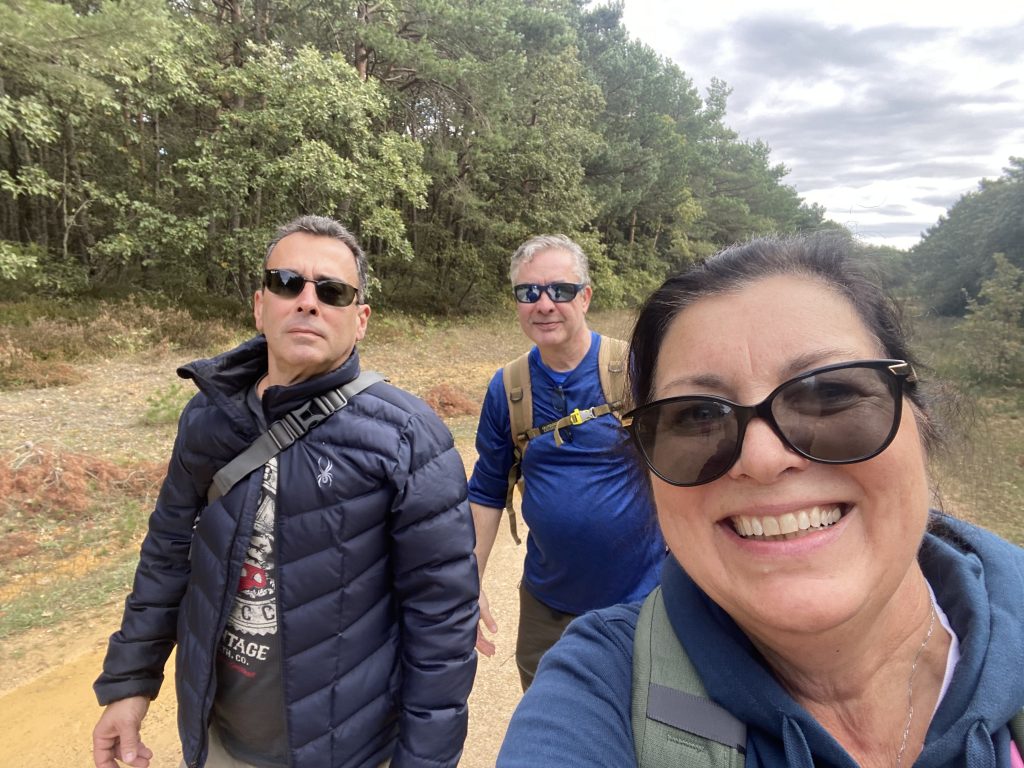
I flew from Spain to Honduras with just a one-night stopover at home to change out the gear and clothing and briefly visit with my two dogs. Arriving in San Pedro Sula for the first time was daunting since I was traveling alone to a new country. All of the advice and coaching I received beforehand did serve me well, as I managed to breeze through customs and the airport and hook up with the right driver even though I do not speak a word of Spanish. And I met up with Bobbi Hess, who oversees the Manos Amigos Clinic at which I would be serving. (Her father was the founder of the clinic) What an inspirational woman to have the pleasure of getting to know!
Bobbi Hess
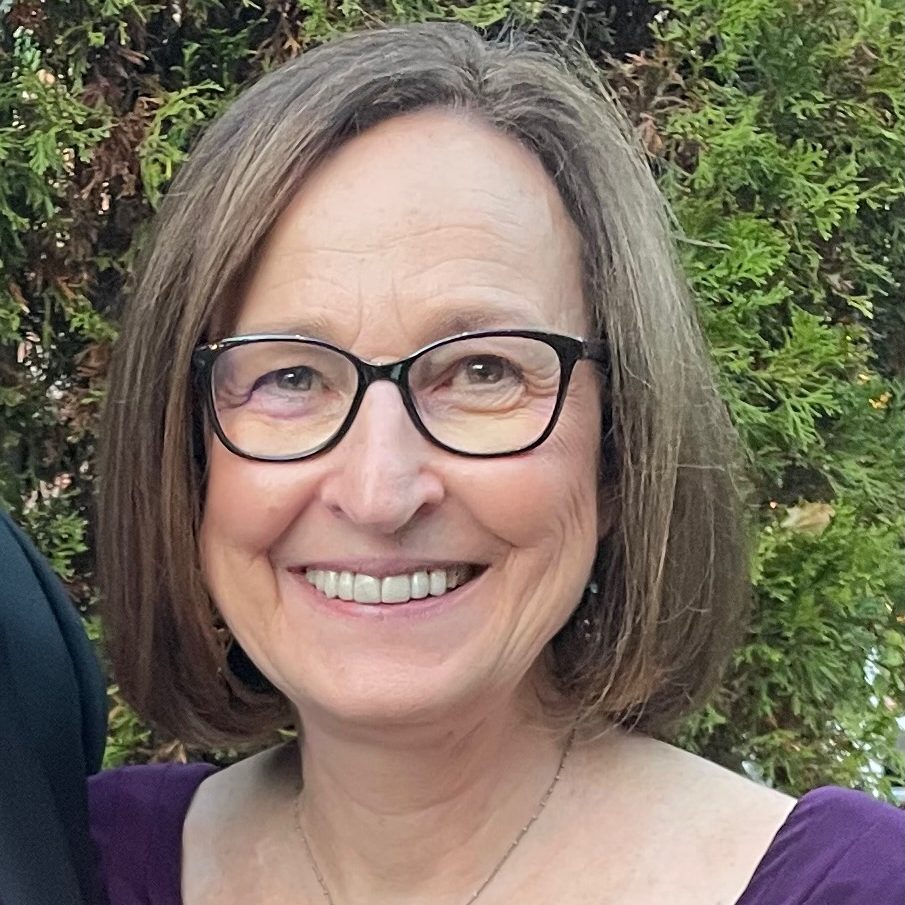
Even though the ride to Manos Amigos Clinic is not enormously far (approximately 110 miles from the airport), the roads are tattered like in a war zone and littered with potholes, ditches and ravines, making the ability to drive normal in one lane virtually impossible. Most of the roads leading to Estrada remain under construction, so there are many unexpected delays. There we were in a lineup of cars, buses and trucks participating in what looked like choreographed routine of snake turns ebbing as the parade made its way along the treacherous roads into the countryside. Seasickness from all the motion could be felt. What normally would take no more than 2 hours was now +5 painful hours.
At one point I glanced out the window of the van at a very large trash dumping site and noticed the herd of people- adults and children alike- probably families- standing atop the trash mounds shoulder to shoulder with big vulture birds. It broke my heart to see this kind of poverty. This is their livelihood, and it’s a harsh reality for any of us to witness. This is how they must try to survive in this world. The ugliness of the scene imprinted into my brain and will haunt me for years to come.
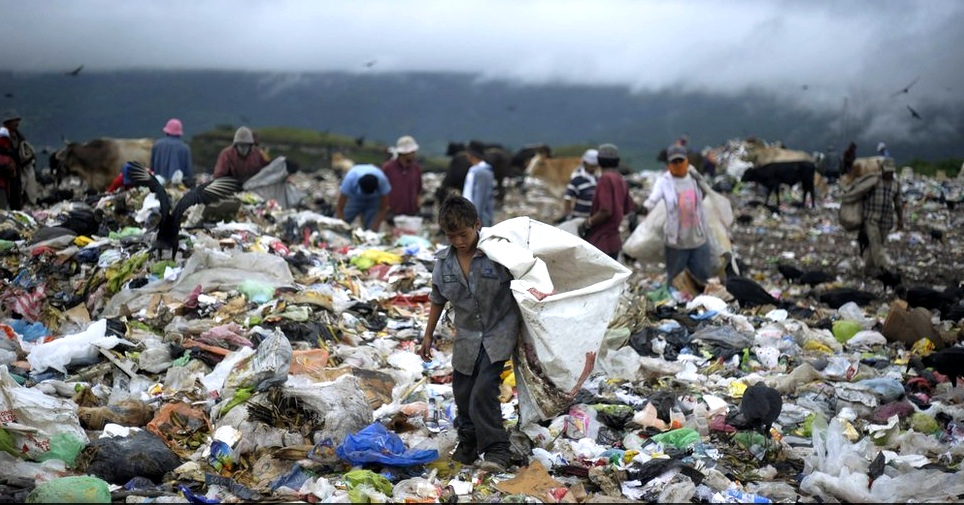
Relieved to step out of the car at the clinic, I finally stretched my legs and got off that horrific merry-go- round. At the clinic was where I met up with the rest of the team, who had arrived the day before and had set up the operating rooms for surgeries.
Mission Team Leaders: Dr George Trajtenburg and Dr Anthony Coletta
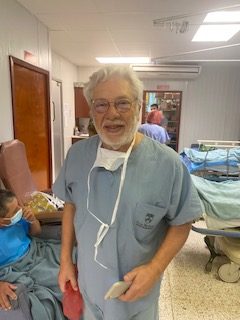
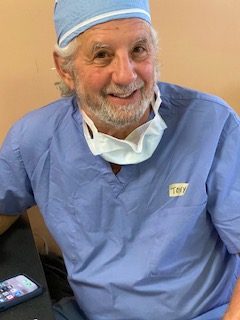
Blue Sky Brigade included 4 general surgeons and 20 OR nurses, 3 post-op nurses, 4 anesthesiologists and 6 general volunteers including myself. All of the people had plenty of experience on surgery medical mission trips before, either following Dr. Anthony Coletta to Double Harvest Clinic in Haiti or trekking with Dr George Trajtenberg to this very clinic in Honduras. The two surgeons in charge, Dr Coletta and Dr Trajtenburg, were old friends and for that reason, it was easy for all to mesh well as one big team- focused on the same goals and uplifting the same vision for how the mission trip would run. No question this was a well-greased and finely tuned engine. Even the new doctors were inspired by the seamless leadership of Drs Coletta and Trajtenburg.
Blue Sky Surgical Brigade 2024
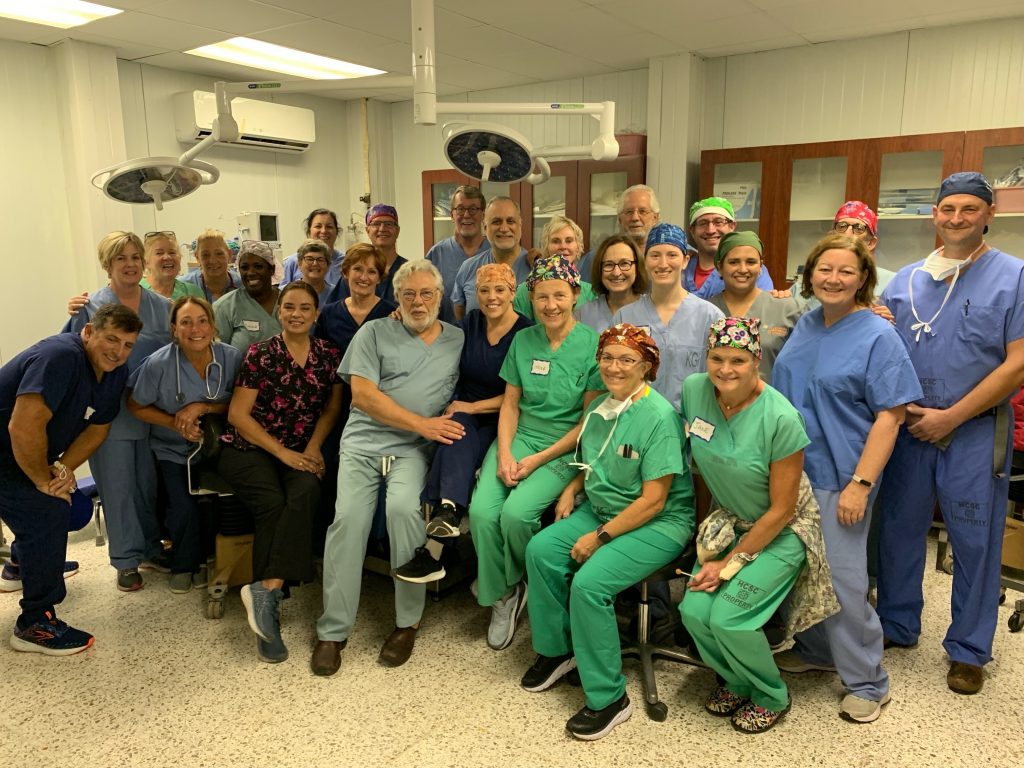
As evening drew near, we piled into vans and drove another 15 minutes into the town of Estrada to stay at a decent hotel arranged by George, who is Honduran in background, not only did he help start the clinic with Bobbi Hess’ father, but he remains active on the board of Manos Amigos. We unraveled ourselves by the pool and took time to learn about one another. I realized that just about everybody in the group had already met either by working together or indirectly in the past. I was the new gal on the team, so I would have to earn a place of belonging. For now, the basic purpose given to me was that I would serve as group photographer capturing the team in action and back up to the other volunteers in sterilization. So, I did not find a footing immediately on how my service was going to contribute.
We enjoyed our first meal in the restaurant and retired early to be ready for the 5:30am call in the morning. I somehow managed to fall asleep even though I was in a strange bed in an unfamiliar place. Even though we could not drink the water from the tap or let it get into our mouths in the shower, I was already aware that this place was a much easier environment than that of Haiti.
In the darkness of the early morning, before sunrise and before the roosters crowed, the crew assembled for some amazing Honduran coffee and breakfast. And a short while later, we packed up and stuffed ourselves back into the vans and headed over to the clinic where patients were already lining up. The people are from the local region for the most part, many of them coffee farmers from this mountainous region.
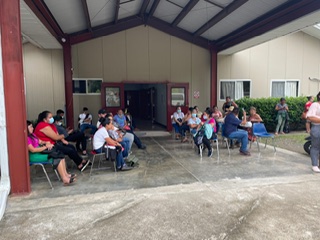
Full patient waiting area when we arrived
Seeing the full waiting area, the clinic became lit with excitement! Everyone fluttered around in a sea of nervous energy to get ready. As a general volunteer and my first time with this well-organized team, I was uncertain of how I could best contribute. What talent of mine would prove most useful to this group? Perhaps my excellent organization skills could pay off? Or maybe my ability to problem solve- the MacGyver type- would come in handy. I had time to settle in and learn from the others so no need to find my footing right from the get-go but at the same time, not knowing can prove to be stressful. Well, immediately, I found myself gleefully becoming a “go-for,” i.e., go for this, go for that. And this meant going to find things inside the highly unorganized and cramped storeroom, and I eagerly tried to help every person who asked. It’s true that (as I’ve come to learn on medical mission trips) the storeroom almost always is in dire need of attention.
As the day pressed on, I moseyed back into the storeroom to organize the chaos of supplies that had landed there over the past decade. Boxes upon boxes of donated surgical instruments were stacked on the floor, unopened and unresolved. Even though I do not have a surgical background, I made it my quest to sort every single tool into the appropriate labeled bin. And I disposed of all the obsolete tools and supplies, which sat taking up valuable space in the already tight storeroom. After a while, one of the PACU nurses, Barbara, who was eager to help, came back and joined me. We spent the entire afternoon making sense of all the supplies. And by the end of the week, we had organized the entire room to everyone’s joy. There was quite a lot of excess hospital supplies, which would never be utilized at this clinic, so we gathered and donated all of it to the local hospital who had a need.
Finding my usefulness in the storeroom and in sterilization
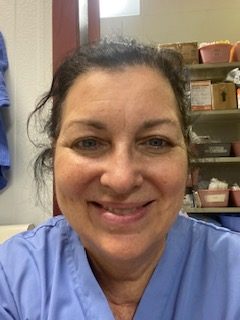
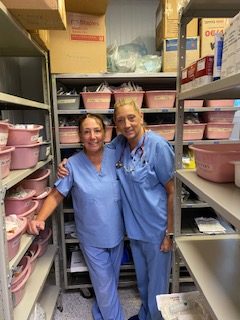
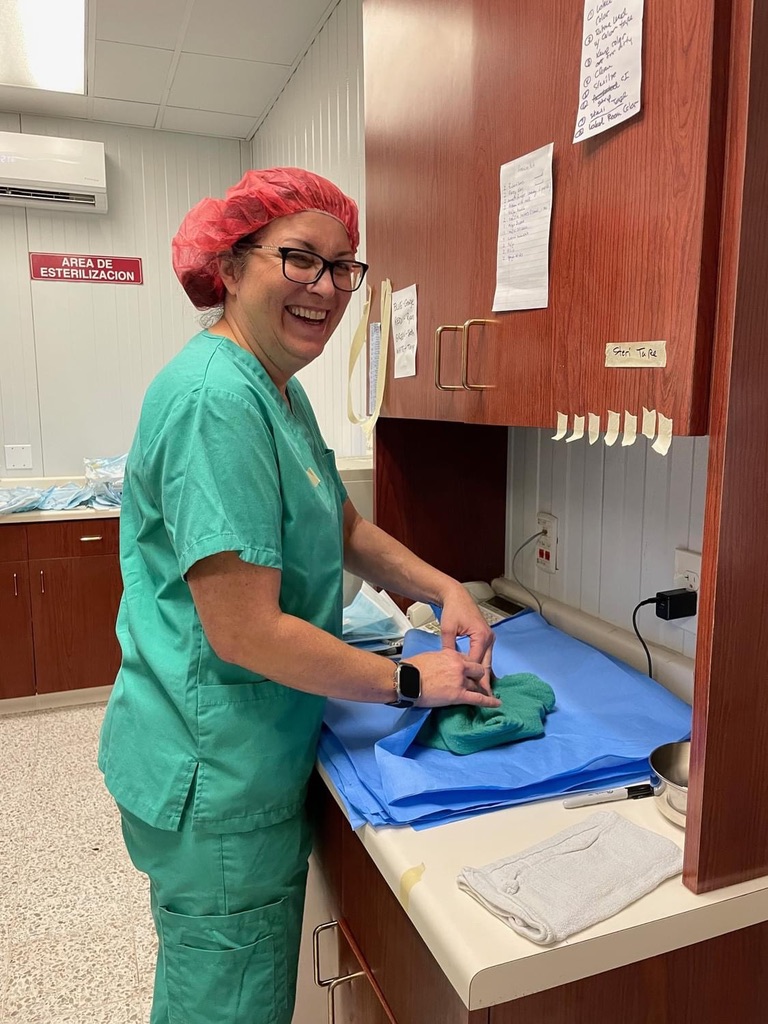
And when one of the general volunteers had an emergency and cut his trip short, I was asked to assist with sterilization, which is a key function in the clinic supporting the operating rooms. The sterilization area was a tight spot. All sterilized packets were taken from the machines and sewn across a counter on the back wall for all operating room nurses and surgeons to rummage through. This confusing seek and find exercise seemed so unproductive. Nobody had a clue where to find things and it became a grab and go, each person for themself. And noticing that all the operating room nurses were searching for certain types of equipment, and better yet, assembled surgery kits with the right types of instruments for their scheduled surgeries, I sprang into action because now that I had sorted the storeroom, I readily knew where all the tools they were seeking could be found. So, I set up colored bins earmarked for each operating room and assembled the sterilized tools and kits that each room requested. Once again, my organization skills paid off and the team highly benefited. And the project manager who was running sterilizations unit noted that my new system would be adapted into the clinic. And now, I felt like I had found my footing and made an actual contribution!
The week flew by. The team acted heroic and undaunted in their mission to serve. They rose in the wee early hours of the morning, worked long 12–14-hour days standing on their feet taking care of each patient and didn’t rest until everyone on the team was finished with their work. Even if they completed the scheduled surgeries early, if it was possible to squeeze in another patient or so or assist another, they would do it. And then the team, being fully exhausted, would pile into the vans, head back to the hotel for a shower and quick meal, and go collapse in our beds and then do it all again the next day. What unwavering dedication to serving the poor of Honduras! I know that each one of them chose to be doctors and nurses so that they could take care of patients. This was a true testimony to that endeavor. Taking vacation time to fly down to Honduras and offer their time and compassion to so many in need moved my heart in such a deep way. I am truly touched by the team’s willful spirit and dedication to making the trip so highly successful. Blue Sky Surgical performed more than 120 surgeries in the week. Many of the patients had been suffering for year and would otherwise continue to suffer without hope to be able to seek treatment in their lifetime.
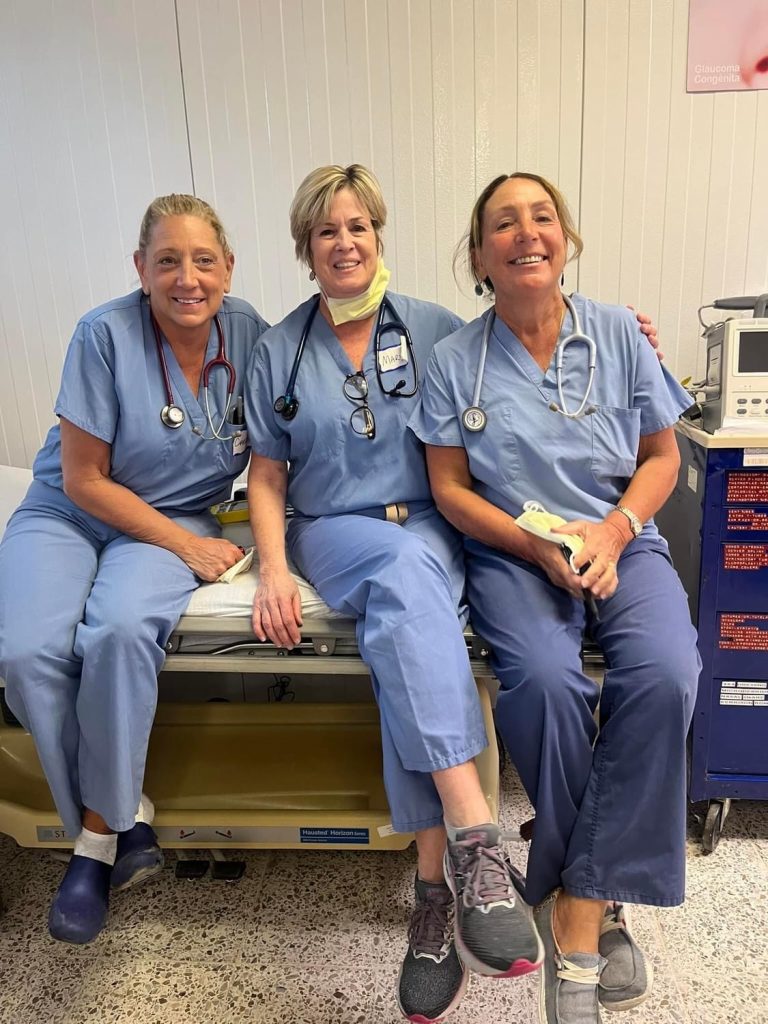
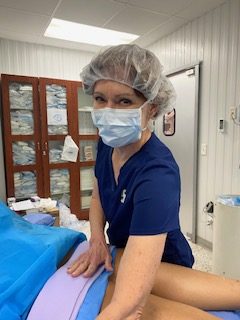
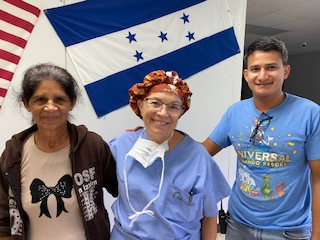
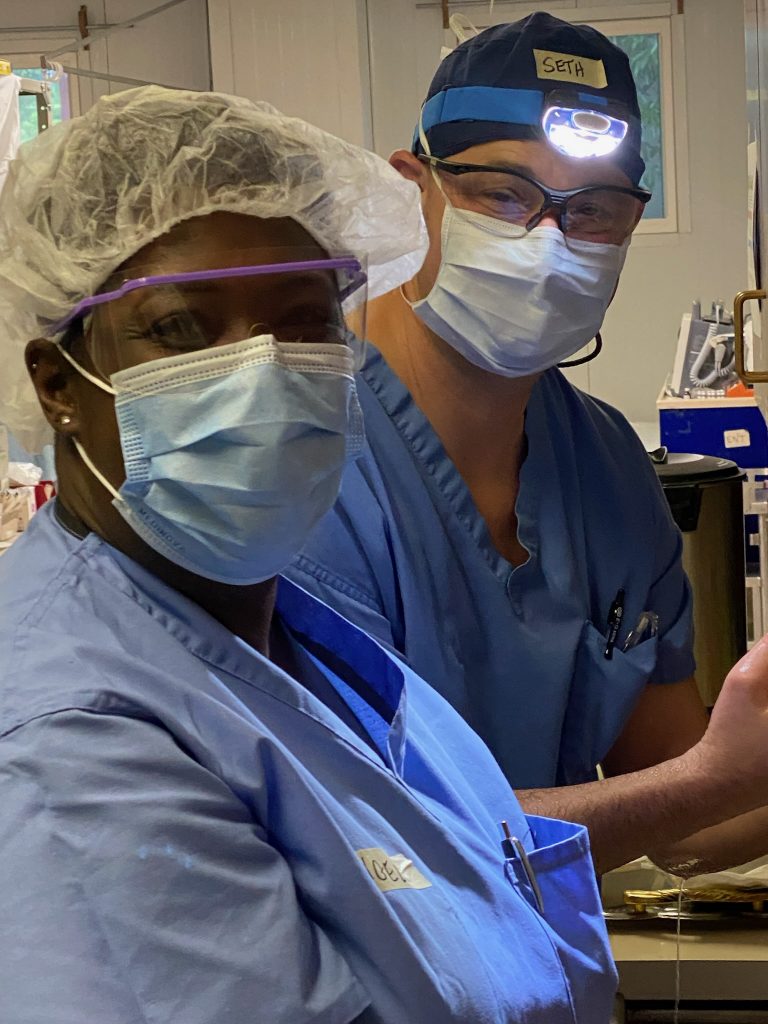
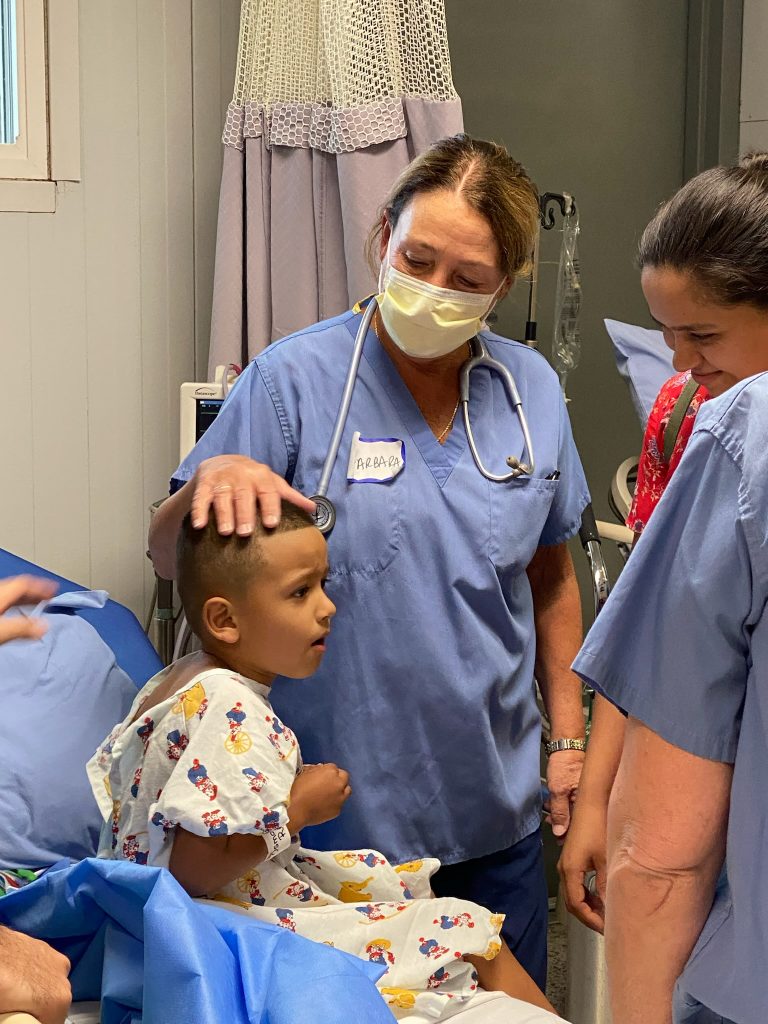
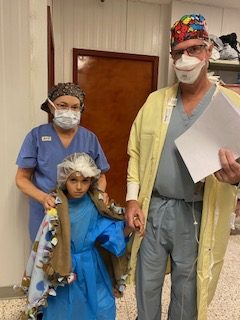
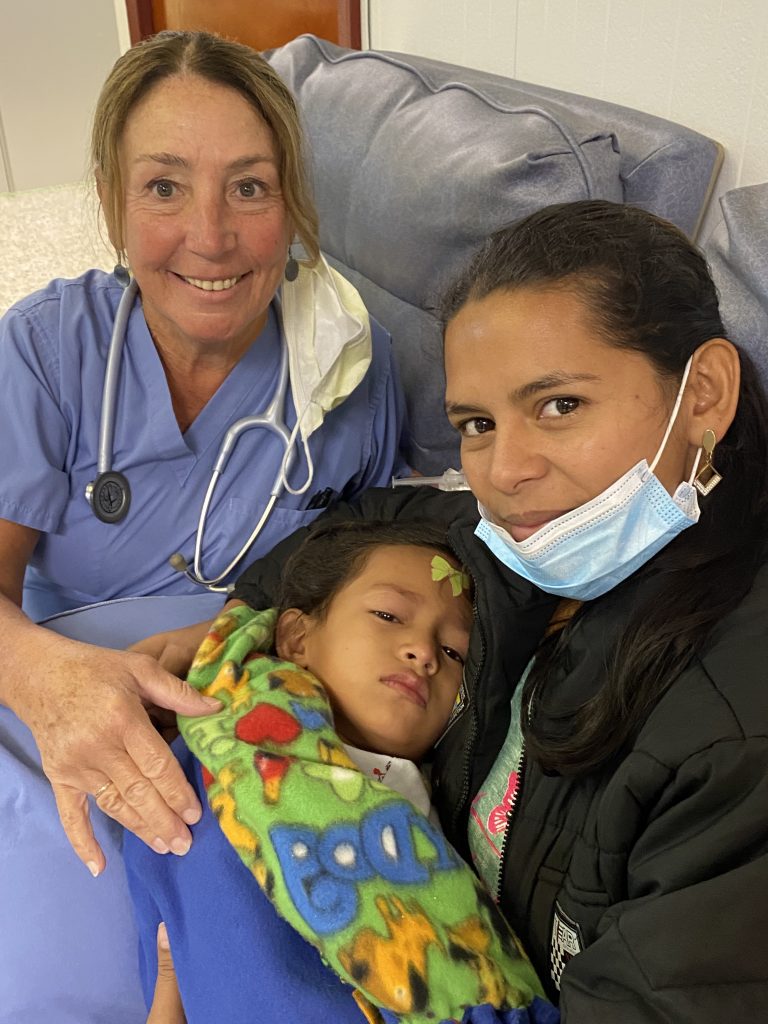
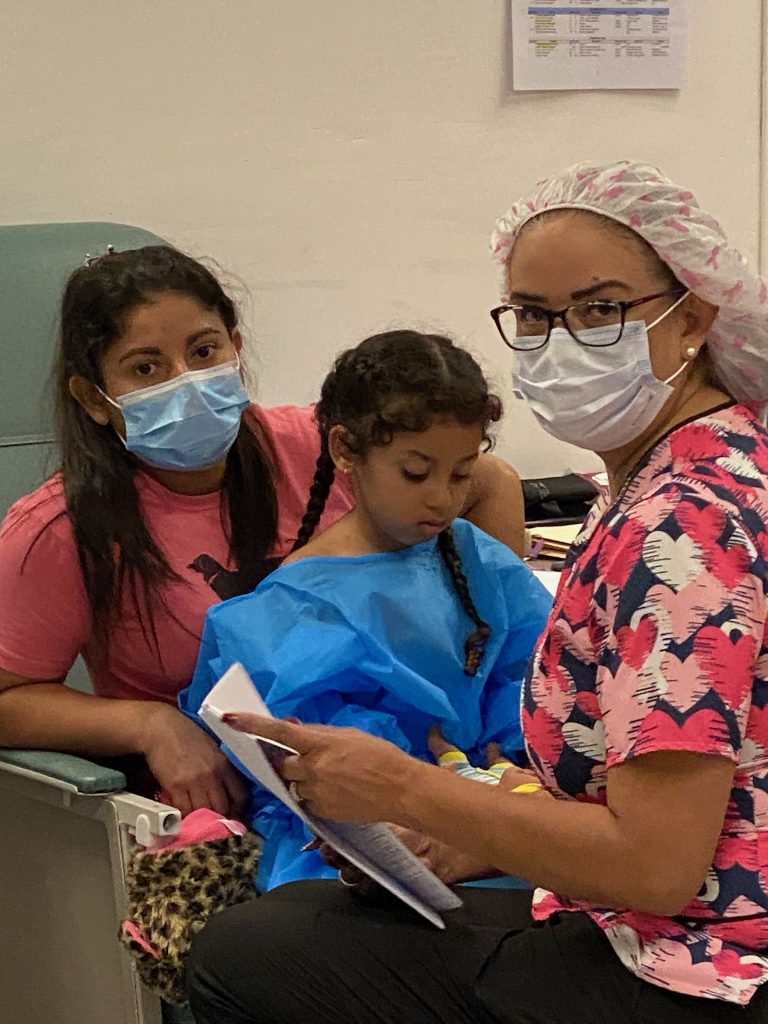
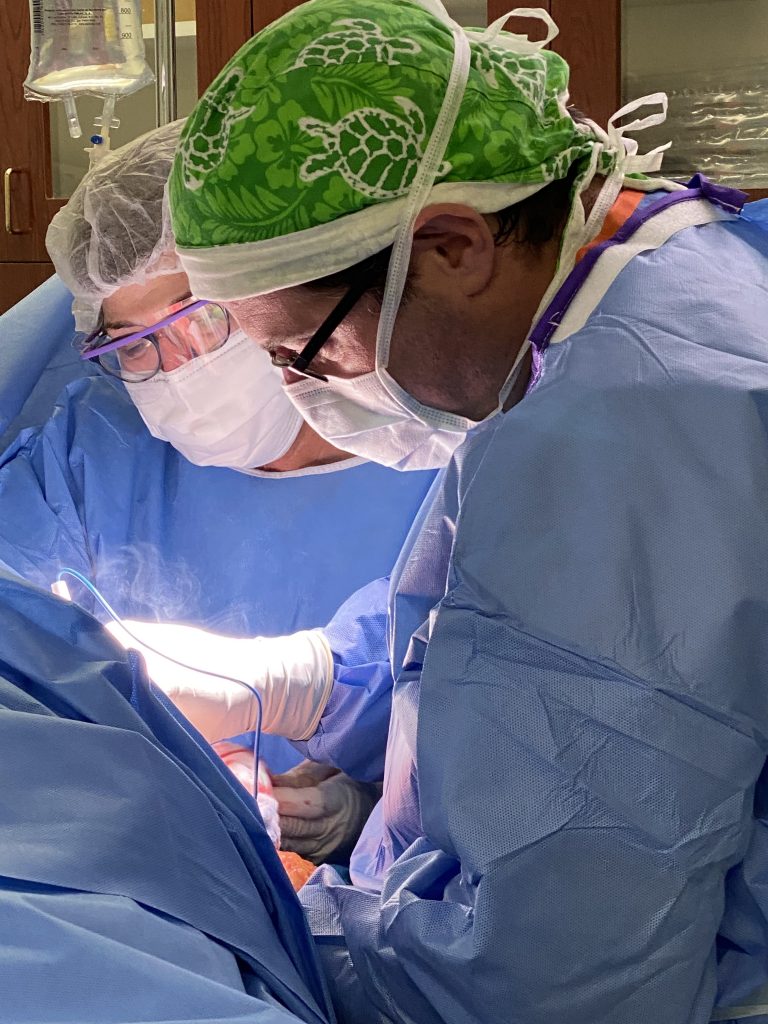
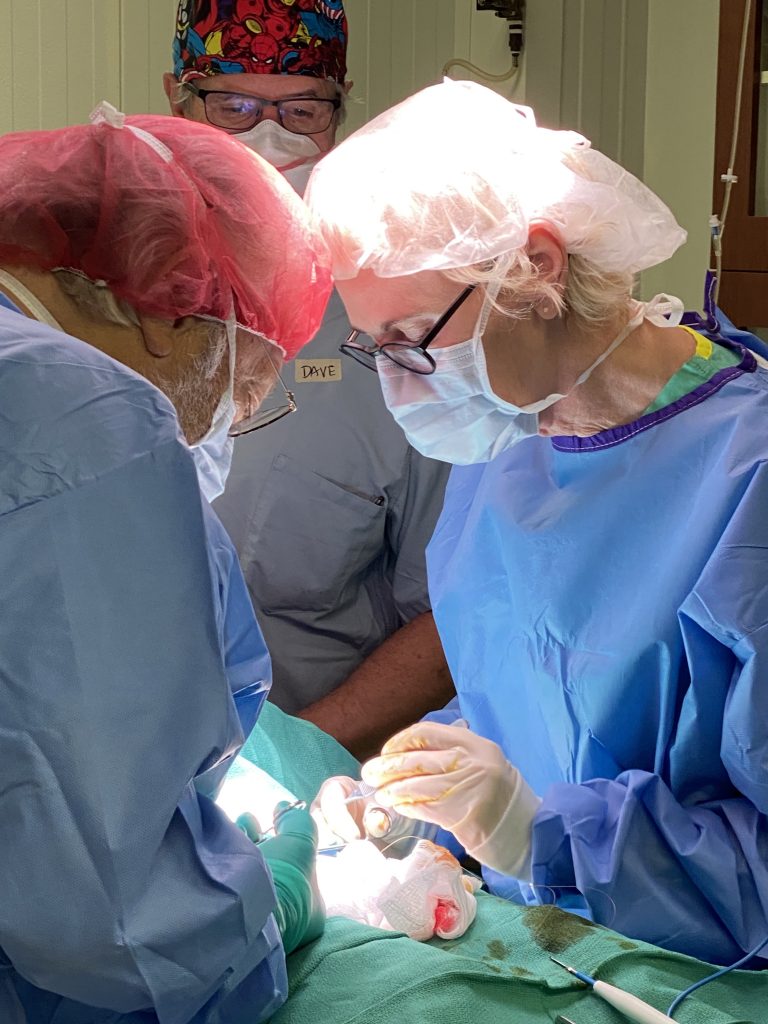
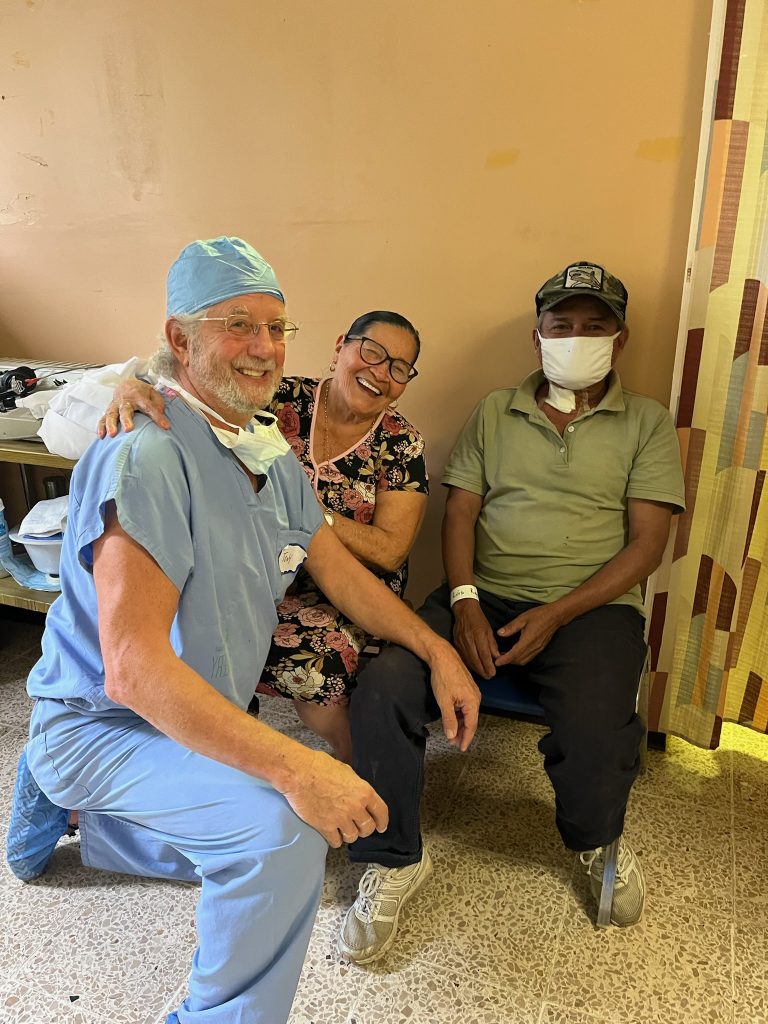
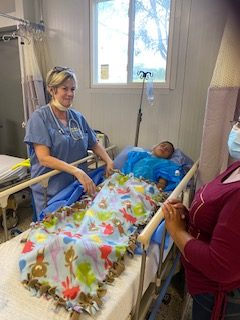
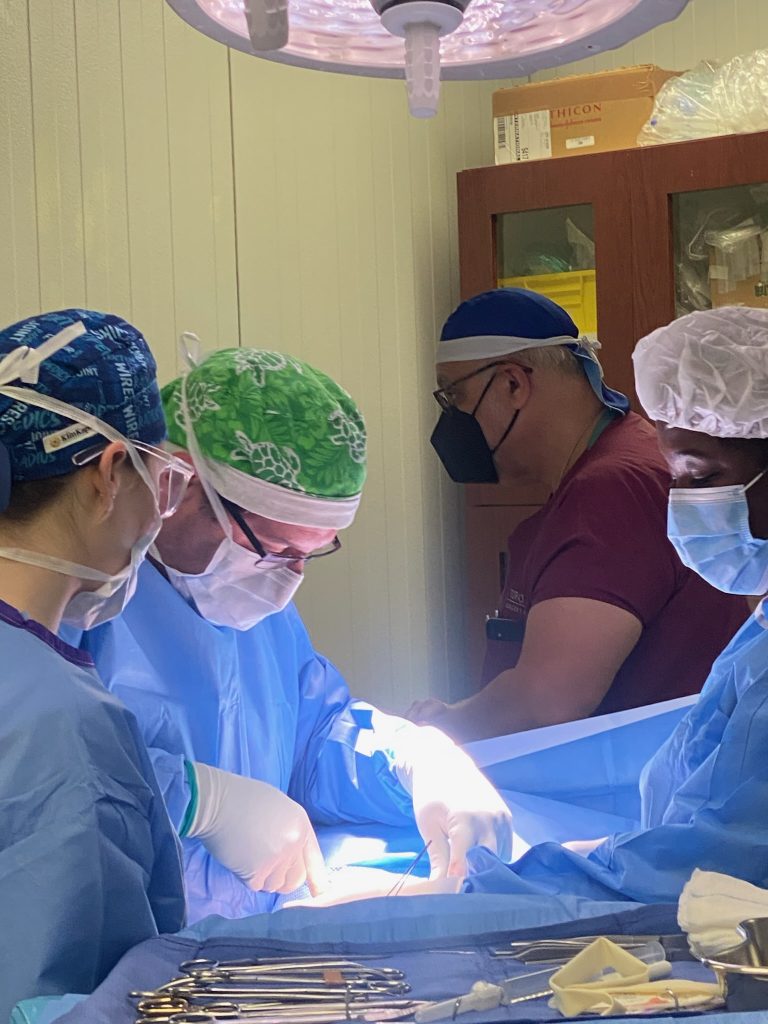
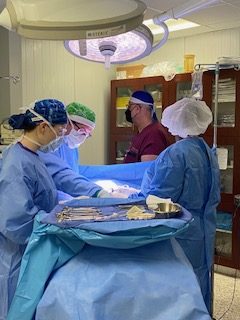
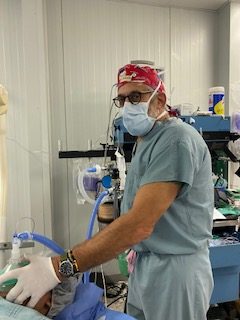
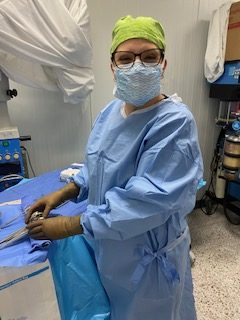
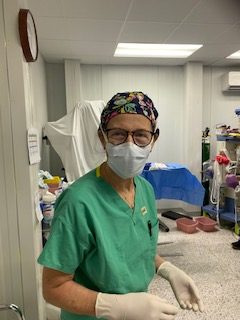
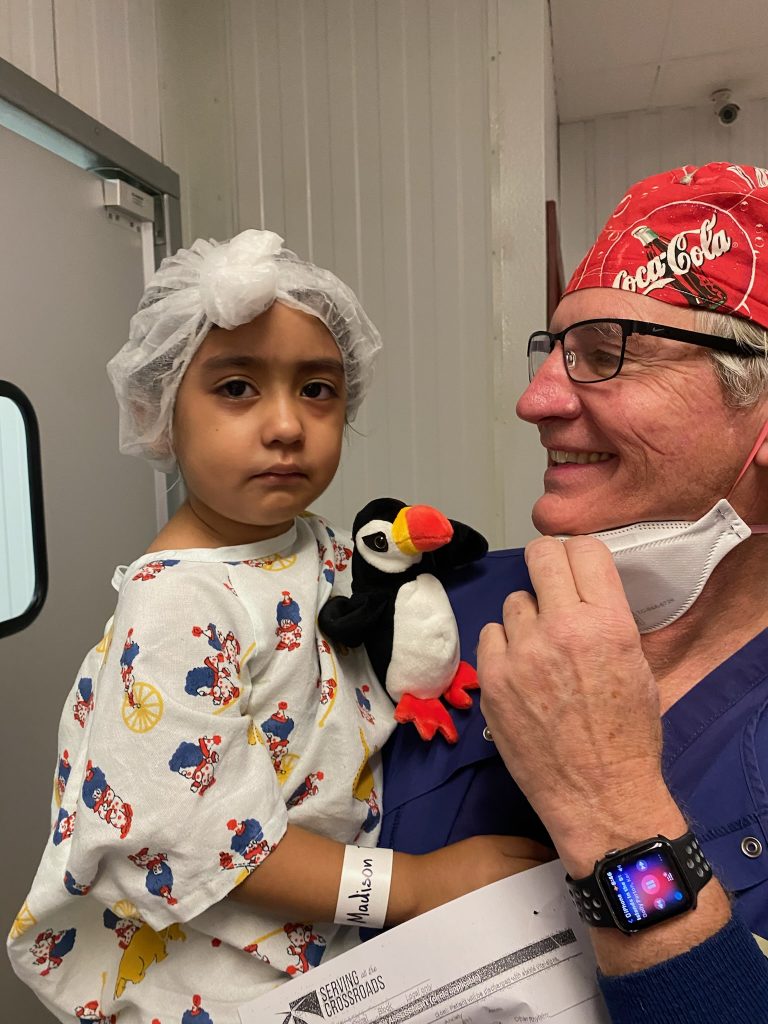
One of the most notable operations performed in the week was a hernia removal for a 29-year-old man. The poor man had been suffering for nearly nine years with the growth, which was the now size of a human head. Just trying to put on pants was a challenge. Having the hydrocele removed was life changing for him.
On the morning of our departure, several team members awoke too sick for travel. A third of the team remained in Honduras and had to seek treatment. But as the rest of us began the long and nauseating journey to the airport, one by one the rest of the team began to show some symptoms of illness. We had contracted a quickly spreading virus and it was debilitating us.
Even so, the Blue Sky Surgical relentlessly is planning another trip in September 2024 and will work to establishing two medical mission team runs in the year. I am thrilled to be invited back with the team for the November 2024 trip! Hopefully I continue to find my footing and prove my worth.